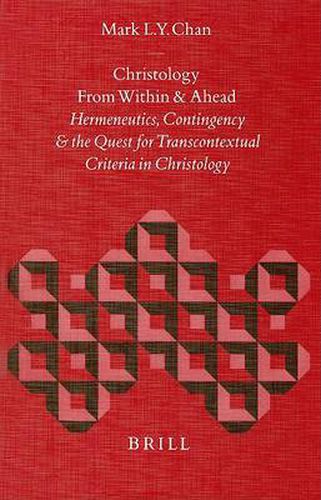Readings Newsletter
Become a Readings Member to make your shopping experience even easier.
Sign in or sign up for free!
You’re not far away from qualifying for FREE standard shipping within Australia
You’ve qualified for FREE standard shipping within Australia
The cart is loading…






Troeltsch’s struggle with historicism sets the stage for a proposal that Christology be done from within and from ahead. Gadamer’s philosophical hermeneutics and Schleiermacher’s experiential theology inform a Christology from within that is rooted in tradition and experience, while Pannenberg’s notion of proleptic eschatological fulfilment serves as resource for a Christology from ahead.
This volume develops a hermeneutical Christology that takes into account the historical contingency of knowledge, and seeks a Christology beyond the objectivism of timeless truth and the relativism of absolutised contextuality.
The book is concluded with an examination of the convergence of critical traditionality, experiential appropriation and eschatological prolepsis in the Christology of the apostle Paul. The author explores how Christology might respond to the scandal of universality in postmodernity without defaulting on its claim to transcontextual referentiality.
$9.00 standard shipping within Australia
FREE standard shipping within Australia for orders over $100.00
Express & International shipping calculated at checkout
Troeltsch’s struggle with historicism sets the stage for a proposal that Christology be done from within and from ahead. Gadamer’s philosophical hermeneutics and Schleiermacher’s experiential theology inform a Christology from within that is rooted in tradition and experience, while Pannenberg’s notion of proleptic eschatological fulfilment serves as resource for a Christology from ahead.
This volume develops a hermeneutical Christology that takes into account the historical contingency of knowledge, and seeks a Christology beyond the objectivism of timeless truth and the relativism of absolutised contextuality.
The book is concluded with an examination of the convergence of critical traditionality, experiential appropriation and eschatological prolepsis in the Christology of the apostle Paul. The author explores how Christology might respond to the scandal of universality in postmodernity without defaulting on its claim to transcontextual referentiality.